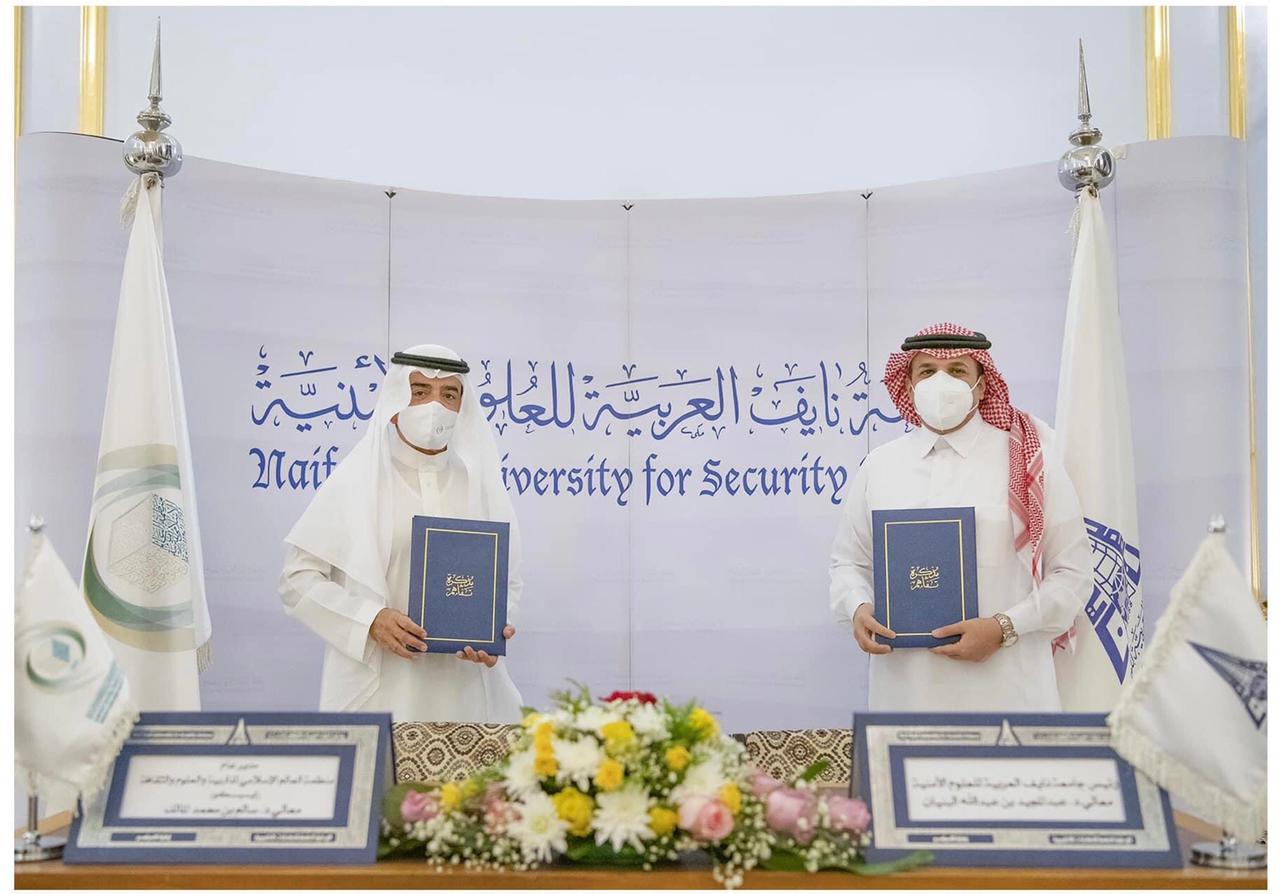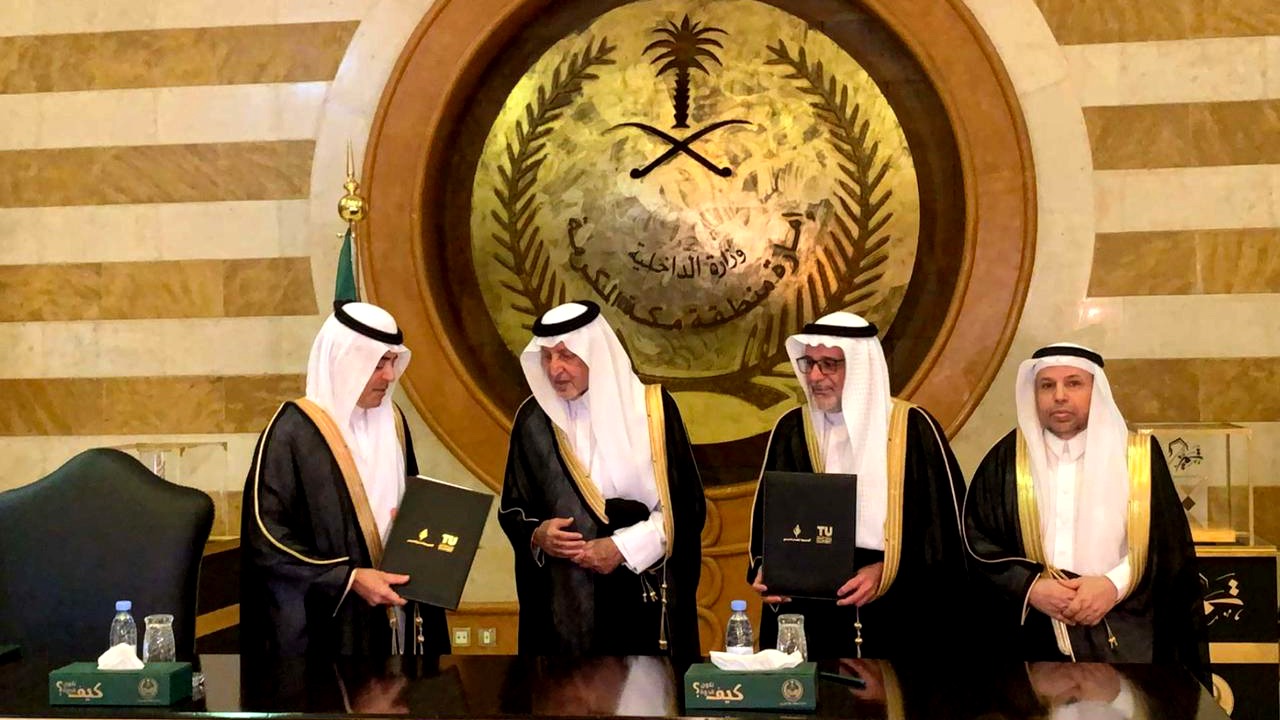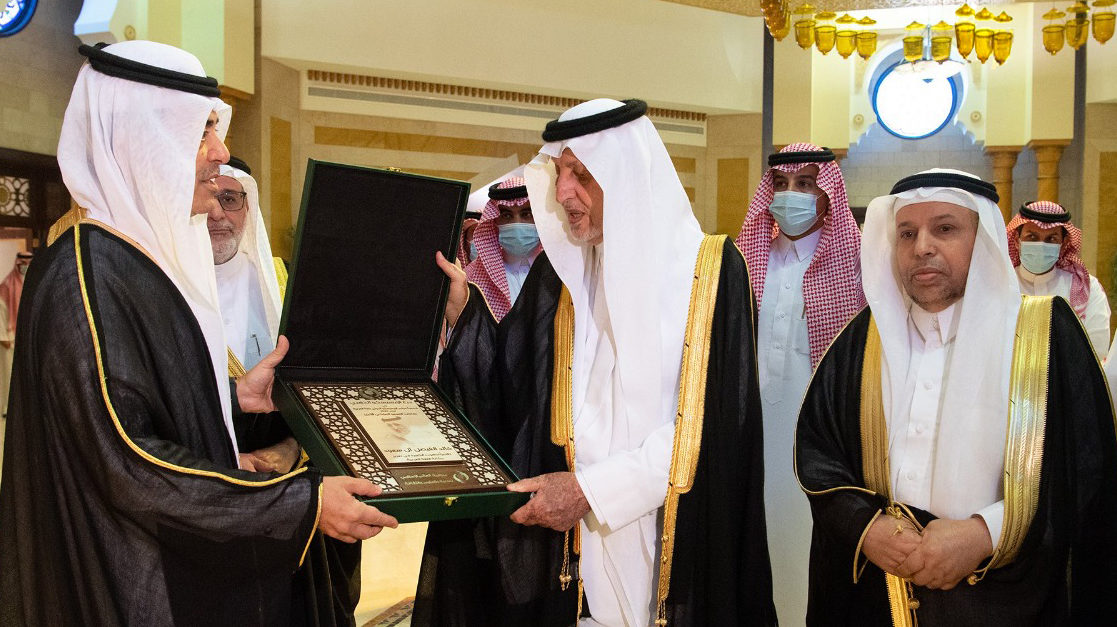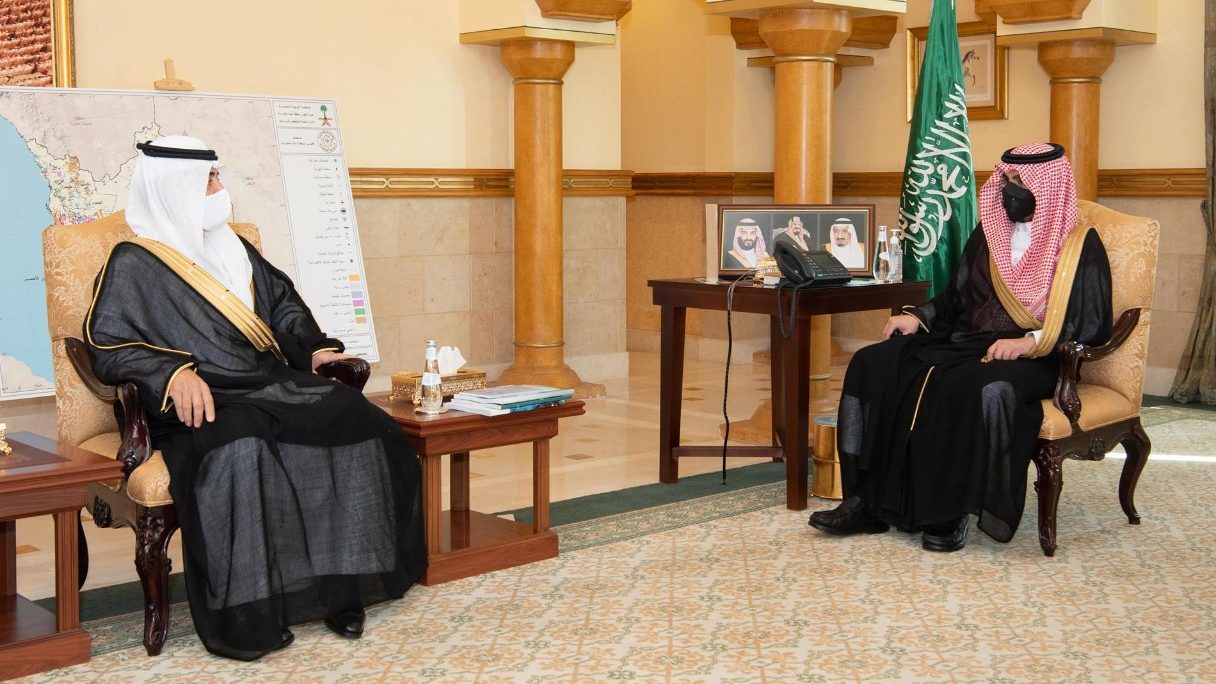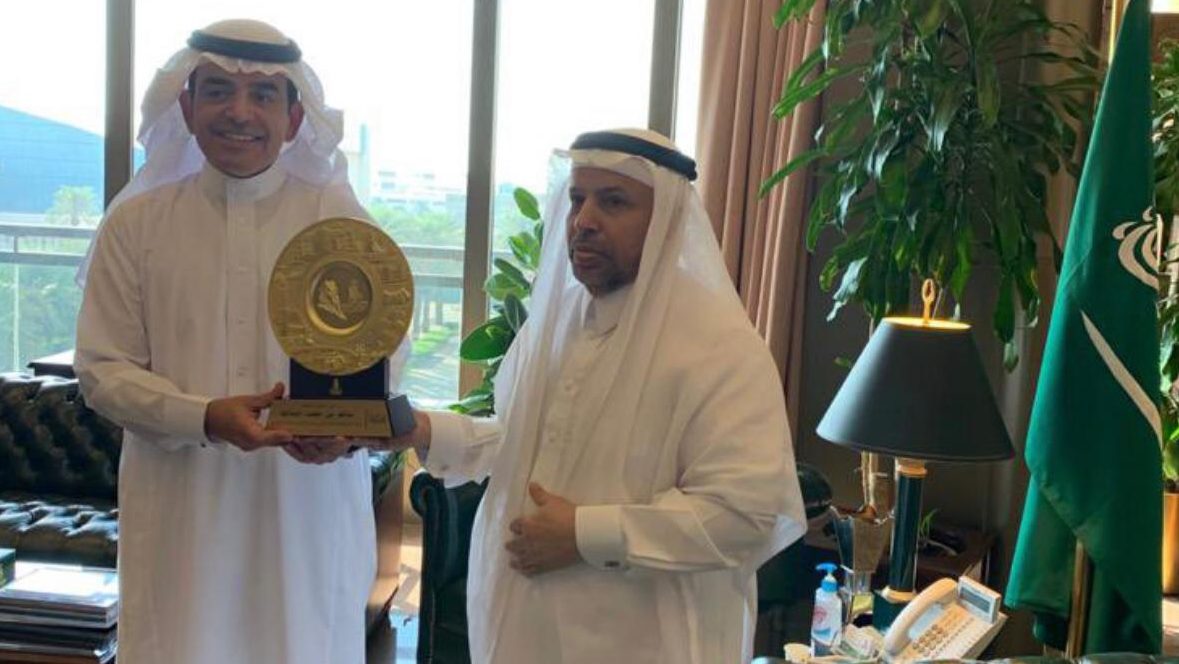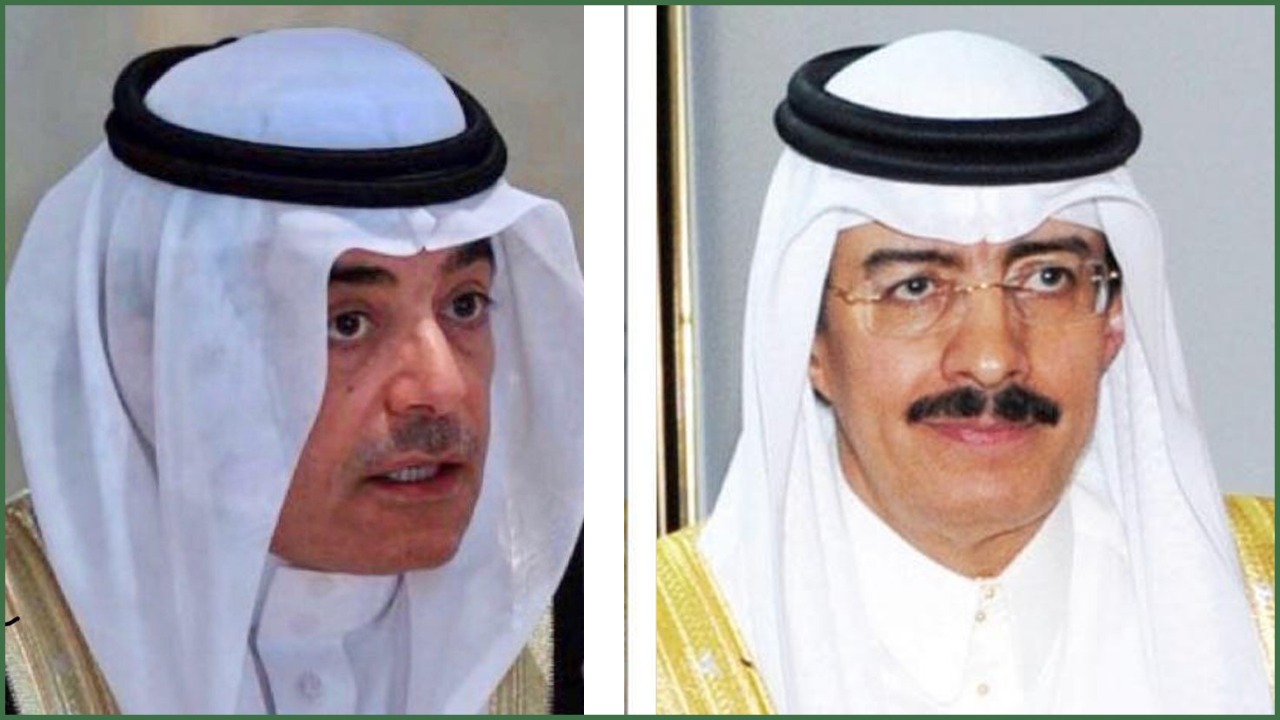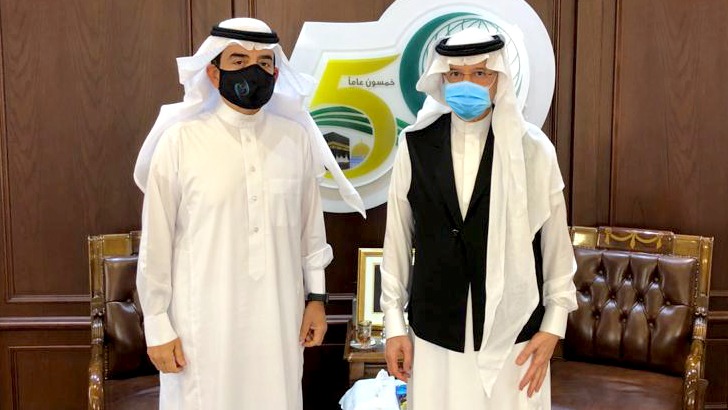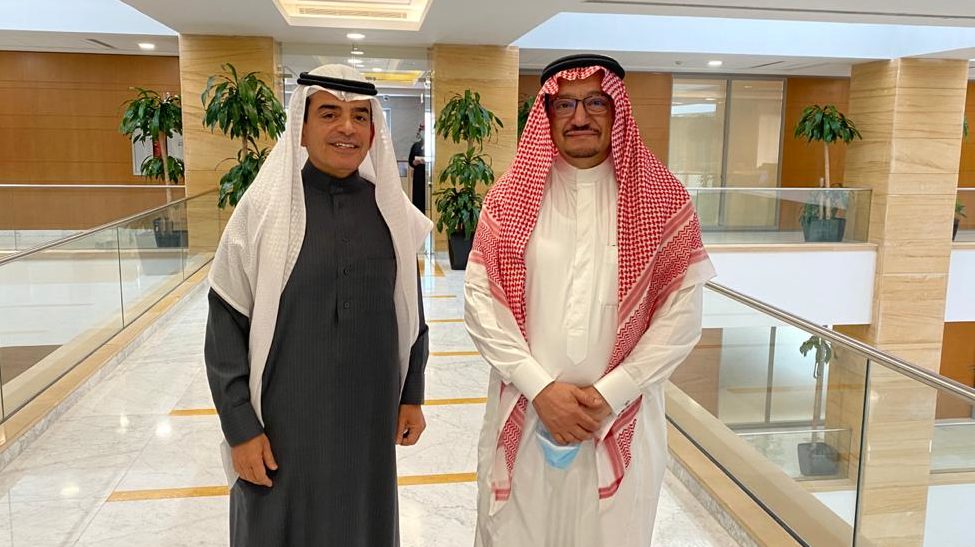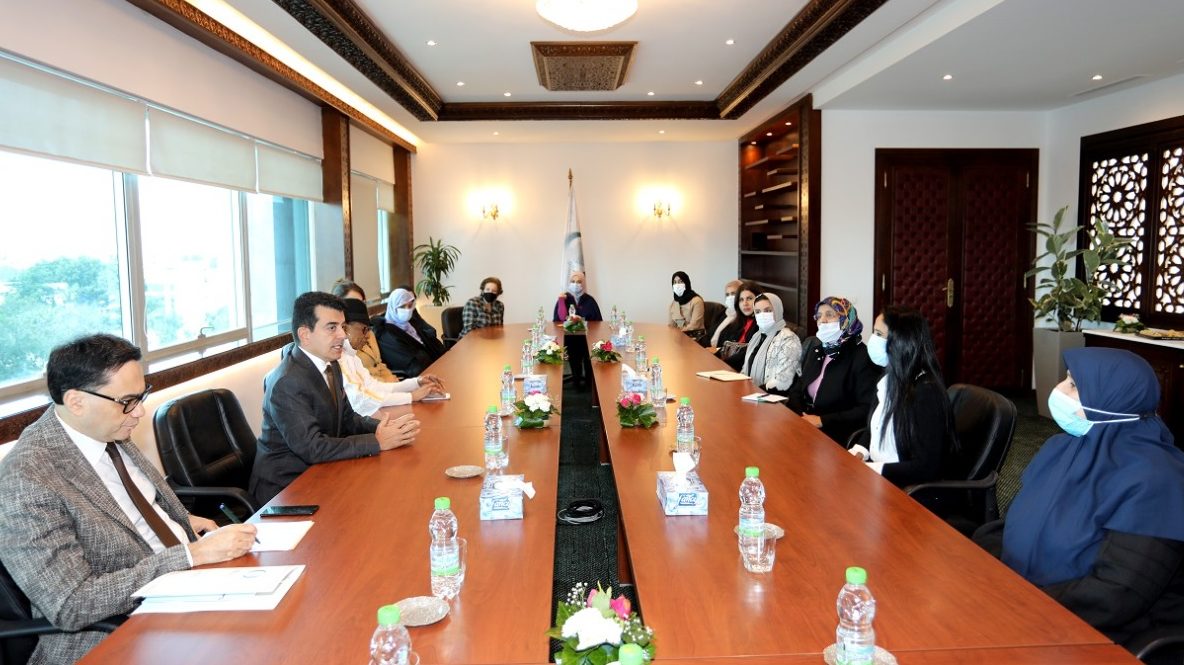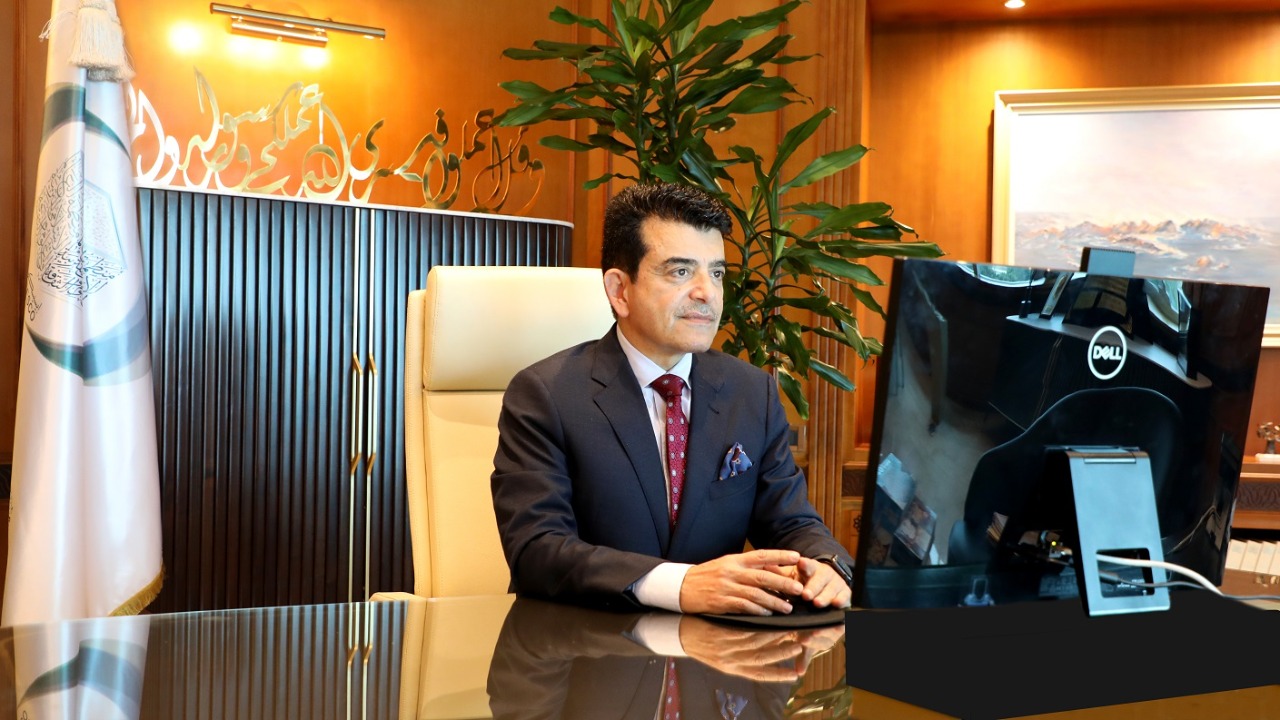Dr. Abdulmajeed bin Abdullah Al-Banyan, President of Naïf Arab University for Security Sciences (NAUSS), received Dr. Salim M. AlMalik, Director-General (DG) of the Islamic World Educational, Scientific, and Cultural Organization (ICESCO), on Wednesday, February 17, 2021, at the University headquarters in Riyadh. The meeting also brought together the vice-presidents of the University and saw the signing of a cooperation agreement between ICESCO and NAUSS.
Dr. Al-Banyan gave a presentation on NAUSS’s future vision on security sciences, which focuses on leadership in training, academic excellence, reference in scientific research, institutional effectiveness, and financial sustainability. He also stressed that NAUSS aspires to be the first Arab university in the areas of security sciences through prioritizing the development of security sciences in the areas of cybersecurity, organized crime, combating terrorism, extremism and forgery, and environmental security, etc.
Dr. Al-Banyan shed light on the potentials and the research and training centers of the University while reaffirming that NAUSS can become one of the top 10 world universities in the field of security sciences.
The meeting also reviewed the most recent programmes and projects that are being implemented in cooperation with international organizations, research centers, and universities, particularly between ICESCO and NAUSS. The focus was also on future cooperation programmes, particularly in the exchange of scientific and academic expertise and capacity-building experiences, the promotion of scientific research and technology transfer, and scholarships for students from Member States.
The two parties also tackled the expansion of scholarships to provide opportunities for more students from the Islamic world to study at NAUSS and benefit from its modern training centers and post-graduate programmes in various security disciplines.
The cooperation agreement that ICESCO DG and NAUSS President signed during his meeting aims at strengthening cooperation between the two parties in academic and scientific fields, research, programmes and activities, training and scientific seminars, capacity-building for decision-makers, policymakers and civil society institutions, and good investment of scientific potentials and resources to promote policies in areas of common interest.
Following the meeting, Dr. Al-Banyan took Dr. AlMalik on a tour of some of the specialized centers, which the University equipped with state-of-the-art technologies, and provided an explanation of their working mechanisms and contribution to the development of security sciences, in accordance with the latest global standards.

